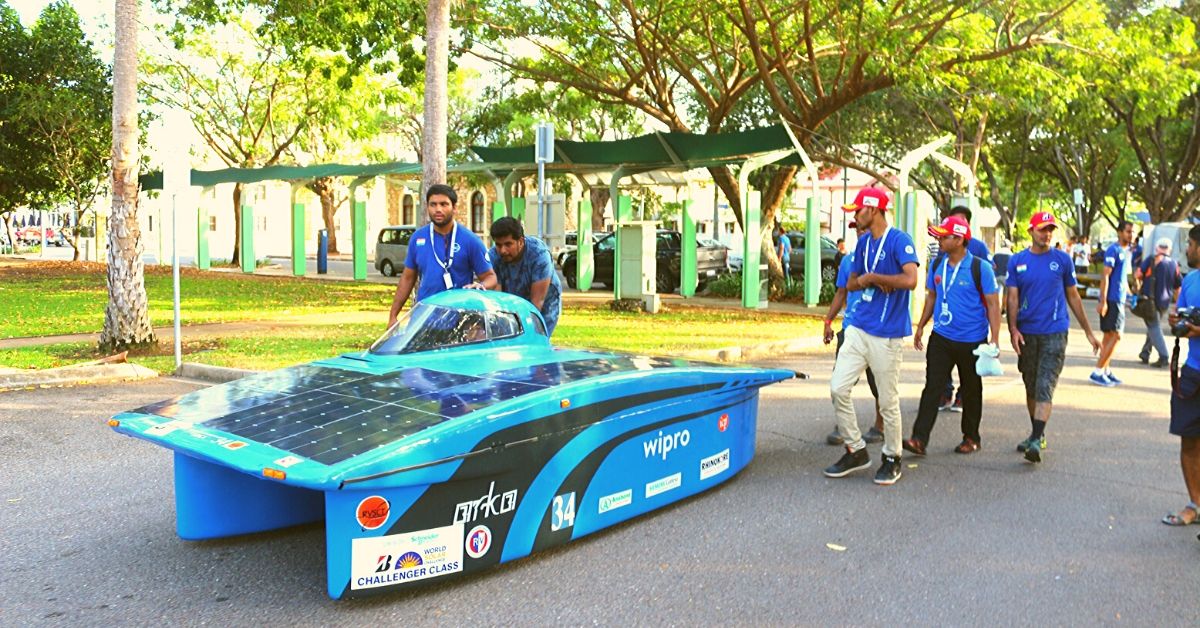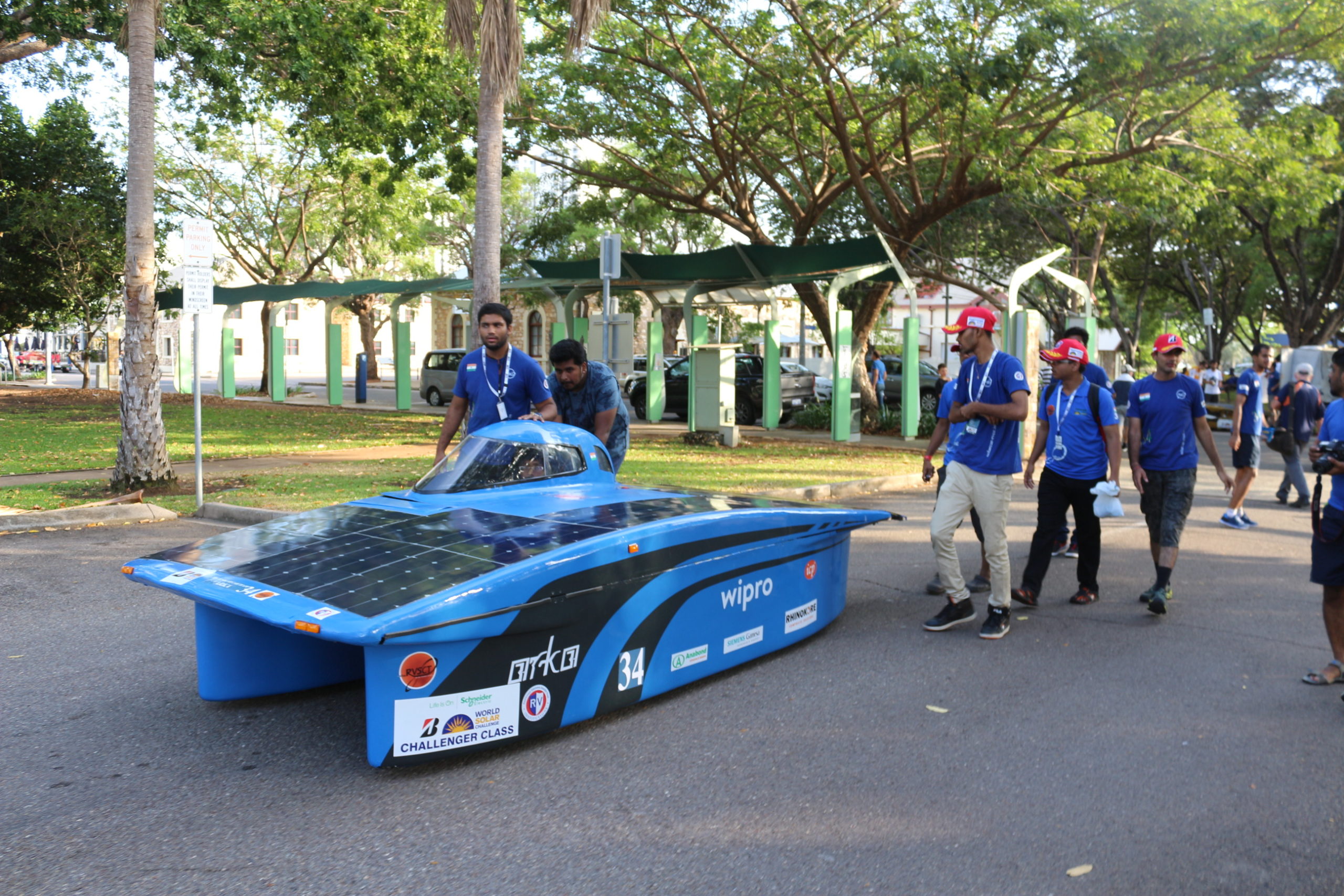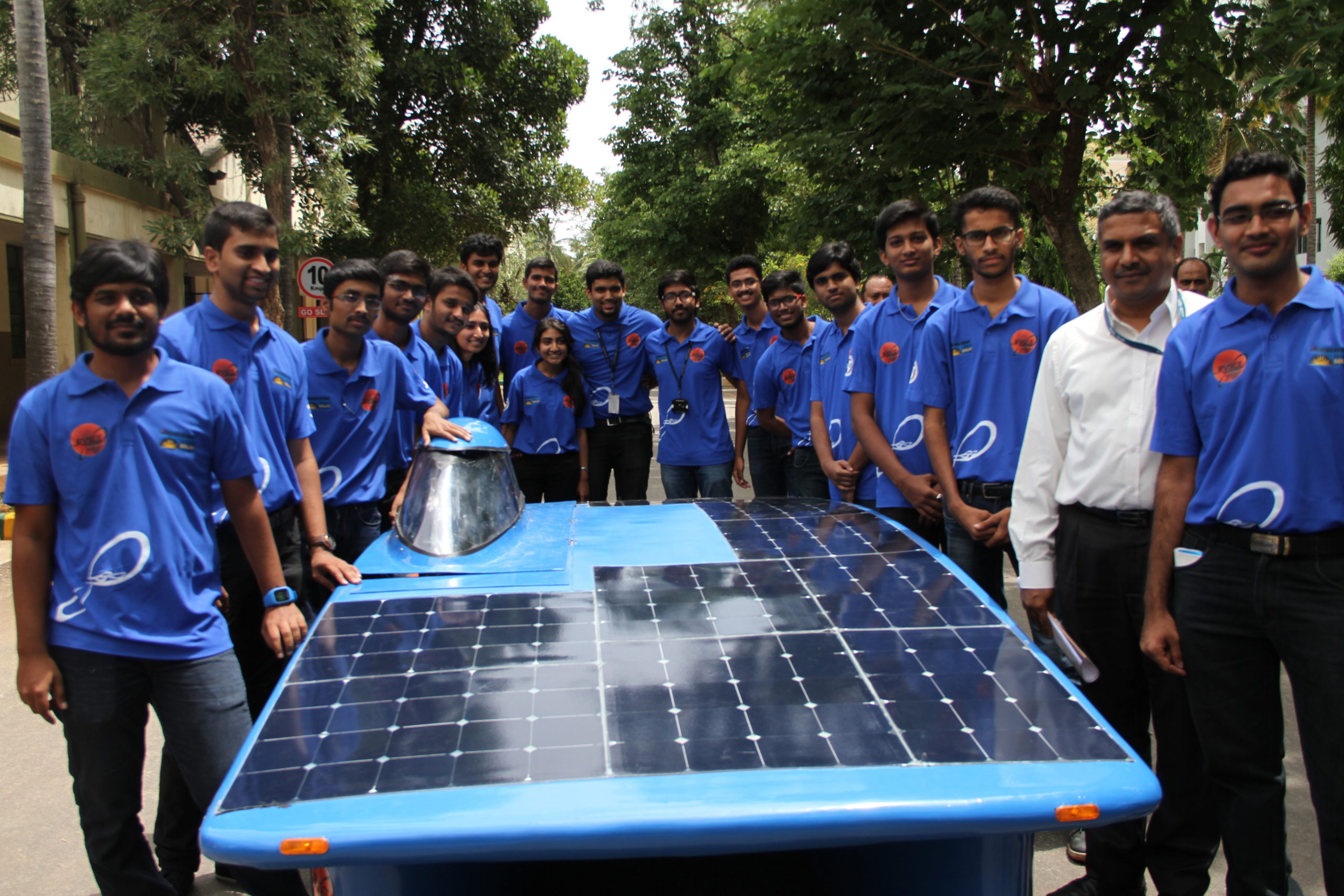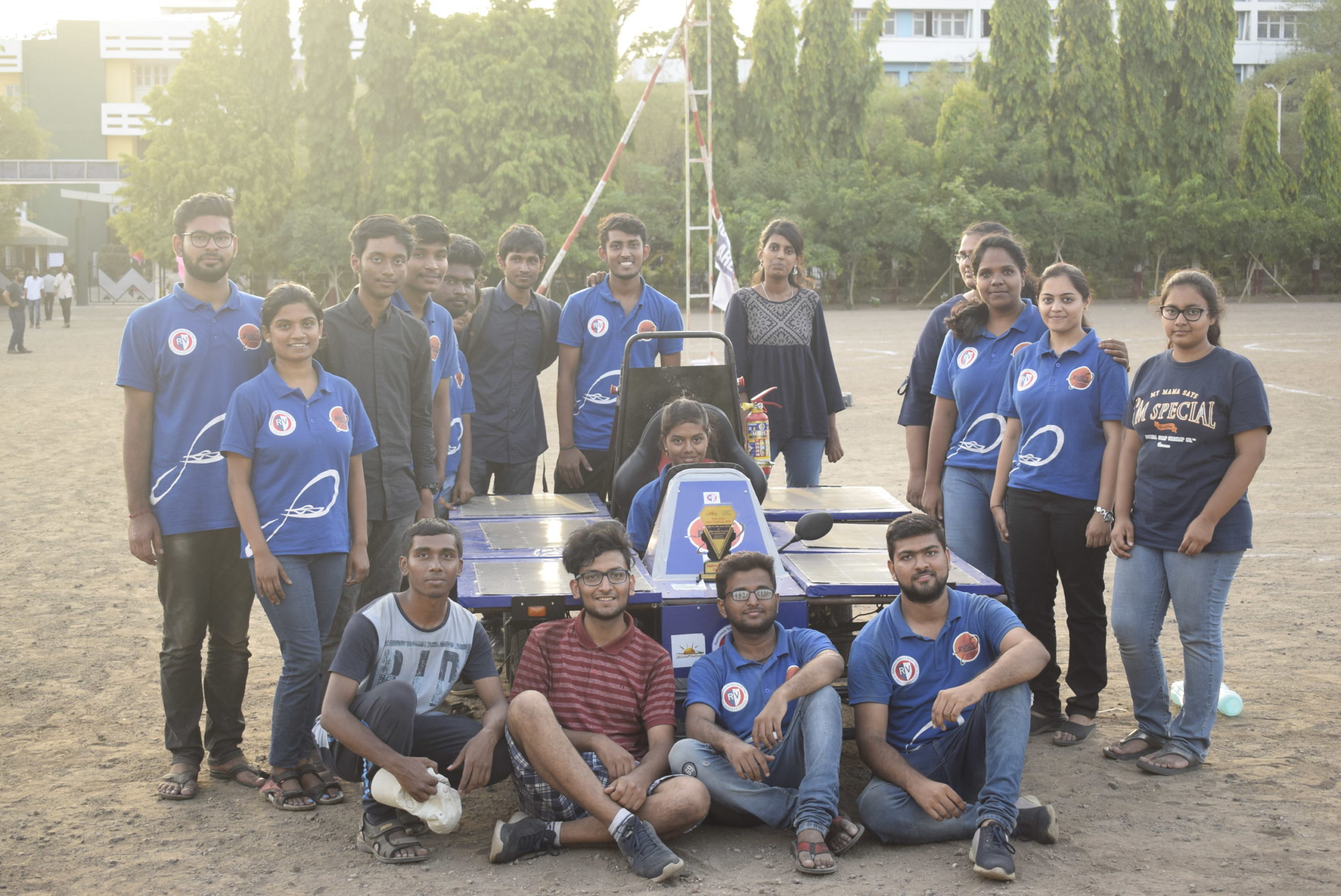B’luru Students’ Carbon Fiber Solar Car to Represent India in 4000 Km Race!
The eight-day alternative fuel auto race will cover the 4100 km stretch between Pretoria and Stellenbosch in South Africa. #Solar #Innovation

In August 2017, a motley crew of 30 students from the RV College of Engineering (RVCE) in Bengaluru studying across various engineering streams participated in the Bridgestone World Solar Challenge (BWSC). BWSC is a design competition to discover the world’s most efficient solar powered electric car driven over 3,000 km from Darwin to Adelaide in Australia. What the RVCE Solar Car Team had at their disposal was the Arka, the carbon fiber monocoque car.
“The car battery ran on solar energy. We charged it with solar panels, and didn’t need any external source of energy. With a battery range of 300-325 km on a single charge at an average speed of 50 kmph (top speed 85 kmph) on Australian roads, the car also had another unique feature. When the solar irradiance is 100 per cent at certain periods in the day, the solar panels generate enough power so that the car does not need batteries to run itself. It then runs purely on solar energy. The weight of the car with the driver (weighing a minimum 80 kg) was 320 kg,” says Sanjeev V, a member of the RVCE team, speaking to The Better India.

In September 2020, the RVCE team will compete in the South African (SASOL) Solar Challenge, a biennial eight-day alternative fuel auto race which covers a distance of 4,100 km starting from Pretoria and ending in Stellenbosch. For the race in South Africa, the team is looking to improve upon their solar electric car’s (Arka) specifics.
“It would weigh much less than the one we used in Australia and more aerodynamically stable, which would reduce the amount of drag. All these elements will help in improving the battery range. The solar panels have been designed in such a way that it would operate with maximum efficiency. We are currently in the manufacturing and procurement phase of our 3rd prototype” he adds.
Early Days
Founded in September 2013 by a group of undergraduate students from RVCE, Bengaluru, the team works towards designing, building and racing solar electric vehicles with a motive of advancing in the renewable energy domain and spreading awareness regarding its plausible benefits in our society.
So far, they have made two cars, Soleblaze and Arka, which run purely on the energy of the sun. This made the student team the only one from India to have ever participated in the World Solar Challenge, Australia.
Key Features
“The battery pack, which constitutes the primary energy storage unit, is made up of Li-ion cells similar to the ones used in the Tesla Model S (NCR18650B). They are chosen for their high energy density and low self-discharge. The battery box is customised by the students themselves based upon their requirements. Any faults or temperature fluctuations are detected, and the optimal voltage of cells are maintained by a Battery Management System,” says the team.
Meanwhile, the solar panels are made up of monocrystalline silicon photovoltaic cells. “The array is restricted to a total area of 4 m2 according to race regulations and are arranged in strings which are connected to Maximum Power Point Trackers (MPPTs) which supply maximum energy at the desired voltage,” claims their brochure.

Another feature is a brushless DC in-hub motor which can be controlled by a connected Motor Controller. Inhub motors drastically reduce energy losses as a separate transmission mechanism is avoided. Also, the telemetry system in the car collects data from multiple sensors in the car, processes required information on board, and transmits the required data continuously to the chase car and the Cloud server.
“Our team has made carbon fiber monocoque cars. We are the only solar car team in India to participate in the World Solar Challenge in Australia twice, even though this tournament has been ongoing for the past three decades. Back in 2013 and 2015, we received a lot of support from companies like Wipro, IBM and Infosys as well. Our initial objective is to build a racing car, but following regular testing for safety, efficiency and other aspects, we want to build a four-wheeler passenger solar car. We have an incubation centre in college, and would like to one day proceed towards developing a start-up along these lines,” says Sanjeev.

Need Support
“While travelling from one corner of South Africa to another, we will have a trailer car as well which will follow our solar car and help in case there are any problems. The trailer vehicle itself costs a lot. Also, taking out cars from India to South Africa and staying there for 11 days, and performing last minute mechanical work on it costs a lot of money. This is the main reason we need financial assistance. Apart from the support of our modest sponsors, we try raising money for the event as such because there is a lot of financial assistance required in manufacturing as we incorporate all our validated innovation,” he says.
Also Read: 1000 Km Range, 30% Cheaper: B’luru Firm Overhauls Charging Tech for Electric Cars!
If you want to contribute to these enterprising bunch of students, you can click here.
(Edited by Saiqua Sultan)
Like this story? Or have something to share? Write to us: [email protected], or connect with us on Facebook and Twitter.
If you found our stories insightful, informative, or even just enjoyable, we invite you to consider making a voluntary payment to support the work we do at The Better India. Your contribution helps us continue producing quality content that educates, inspires, and drives positive change.
Choose one of the payment options below for your contribution-
By paying for the stories you value, you directly contribute to sustaining our efforts focused on making a difference in the world. Together, let’s ensure that impactful stories continue to be told and shared, enriching lives and communities alike.
Thank you for your support. Here are some frequently asked questions you might find helpful to know why you are contributing?


This story made me
-
97
-
121
-
89
-
167













